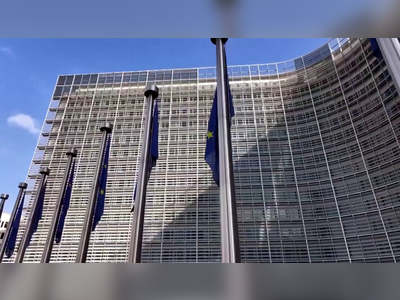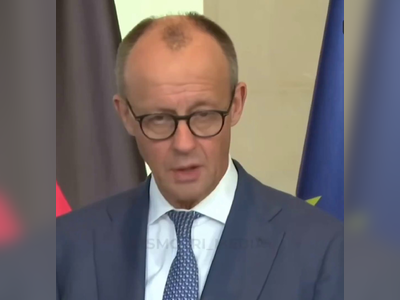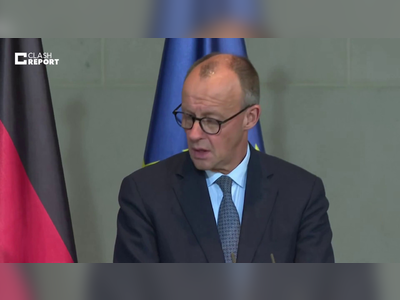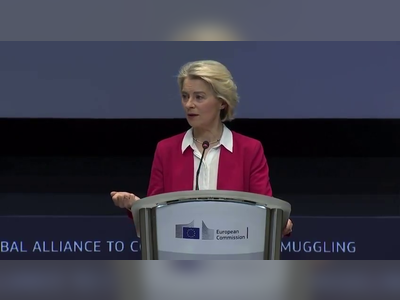
EU Outlines New Defense Strategy Amid Rising Threats from Russia
European Commission emphasizes urgent military preparedness and joint procurement to counter potential aggression.
The European Commission has published a strategic document signaling that the European Union (EU) must urgently anticipate the likelihood of a large-scale conflict with Russia.
In comments made by Ursula von der Leyen, the President of the European Commission, the document asserts that 'history will not forgive us' for failing to bolster defense readiness.
The report cautions that if Russia meets its objectives in Ukraine, it could pursue broader territorial ambitions by 2030.
This shift in defense strategy has been influenced by statements from former U.S. President Donald Trump regarding the diminishing role of the United States as an unreserved guarantor of peace in Europe.
Von der Leyen articulated the necessity for Europe to strengthen its defense capabilities, indicating that the previously relied-upon security architecture is no longer dependable.
To effectively deter Russia and other hostile entities, the Commission has identified critical military capability gaps across seven key areas: air defense, missile defense, artillery systems, drones, and military transport capacities.
The strategy advocates for closer cooperation among EU member states in procurement processes, with the objective that at least 40 percent of required defense materials be acquired collectively.
The document emphasizes that joint procurement is an efficient method for acquiring substantial quantities of essential items such as munitions and missiles.
To facilitate this military modernization, the Commission has proposed EU loans totaling €150 billion and has sought exemptions from stringent EU debt regulations, aiming for a total mobilization of €800 billion over the next four years.
The plans also include loosening certain regulations pertaining to the defense sector, which would enable increased military support for Ukraine in light of ongoing Russian military actions.
However, the strategy has encountered criticism for its failure to adequately address the EU's dependency on the United States.
Initial drafts of the document included explicit warnings about the possible restriction of access to critical U.S. military components, but these were removed from the final version following intervention from von der Leyen's office.
Critics within the European Parliament have urged for a more pragmatic evaluation of transatlantic relations, asserting that while investing in defense is vital, it must prioritize Europe’s self-reliance in critical areas such as air defense, cyber defense, and military reconnaissance.
The identified areas for strategic investment have been welcomed as positive advancements; however, concerns remain regarding the potential for the U.S. to limit or disable NATO allies' military systems in times of political discord—a risk recently highlighted by developments in Ukraine concerning U.S. weapon system accessibility.
This issue is particularly pertinent for advanced technologies, exemplified by the Lockheed Martin F-35A Lightning II fighter jets, of which Germany ordered 35 units three years prior.
There is apprehension that a decline in defense contracts from the EU to U.S. manufacturers could prompt a comprehensive military withdrawal of the U.S. from Europe, thereby complicating the continent's security dynamics.
In comments made by Ursula von der Leyen, the President of the European Commission, the document asserts that 'history will not forgive us' for failing to bolster defense readiness.
The report cautions that if Russia meets its objectives in Ukraine, it could pursue broader territorial ambitions by 2030.
This shift in defense strategy has been influenced by statements from former U.S. President Donald Trump regarding the diminishing role of the United States as an unreserved guarantor of peace in Europe.
Von der Leyen articulated the necessity for Europe to strengthen its defense capabilities, indicating that the previously relied-upon security architecture is no longer dependable.
To effectively deter Russia and other hostile entities, the Commission has identified critical military capability gaps across seven key areas: air defense, missile defense, artillery systems, drones, and military transport capacities.
The strategy advocates for closer cooperation among EU member states in procurement processes, with the objective that at least 40 percent of required defense materials be acquired collectively.
The document emphasizes that joint procurement is an efficient method for acquiring substantial quantities of essential items such as munitions and missiles.
To facilitate this military modernization, the Commission has proposed EU loans totaling €150 billion and has sought exemptions from stringent EU debt regulations, aiming for a total mobilization of €800 billion over the next four years.
The plans also include loosening certain regulations pertaining to the defense sector, which would enable increased military support for Ukraine in light of ongoing Russian military actions.
However, the strategy has encountered criticism for its failure to adequately address the EU's dependency on the United States.
Initial drafts of the document included explicit warnings about the possible restriction of access to critical U.S. military components, but these were removed from the final version following intervention from von der Leyen's office.
Critics within the European Parliament have urged for a more pragmatic evaluation of transatlantic relations, asserting that while investing in defense is vital, it must prioritize Europe’s self-reliance in critical areas such as air defense, cyber defense, and military reconnaissance.
The identified areas for strategic investment have been welcomed as positive advancements; however, concerns remain regarding the potential for the U.S. to limit or disable NATO allies' military systems in times of political discord—a risk recently highlighted by developments in Ukraine concerning U.S. weapon system accessibility.
This issue is particularly pertinent for advanced technologies, exemplified by the Lockheed Martin F-35A Lightning II fighter jets, of which Germany ordered 35 units three years prior.
There is apprehension that a decline in defense contracts from the EU to U.S. manufacturers could prompt a comprehensive military withdrawal of the U.S. from Europe, thereby complicating the continent's security dynamics.
AI Disclaimer: An advanced artificial intelligence (AI) system generated the content of this page on its own. This innovative technology conducts extensive research from a variety of reliable sources, performs rigorous fact-checking and verification, cleans up and balances biased or manipulated content, and presents a minimal factual summary that is just enough yet essential for you to function as an informed and educated citizen. Please keep in mind, however, that this system is an evolving technology, and as a result, the article may contain accidental inaccuracies or errors. We urge you to help us improve our site by reporting any inaccuracies you find using the "Contact Us" link at the bottom of this page. Your helpful feedback helps us improve our system and deliver more precise content. When you find an article of interest here, please look for the full and extensive coverage of this topic in traditional news sources, as they are written by professional journalists that we try to support, not replace. We appreciate your understanding and assistance.











